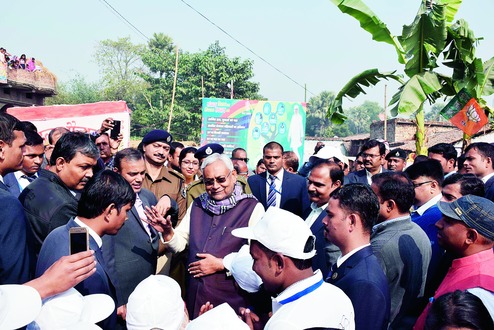
Patna: The government must stop the culture of violence at shelter homes and give residents at such institutions basic human dignity, says the social audit report that blew the lid off the Muzaffarpur horror where at least 34 underage girls were allegedly raped.
The Tata Institute of Social Sciences (Tiss) audit report of 110 shelter homes across Bihar recommends a range of steps, and points out that shelter homes have largely become custodial facilities where the staff have complete control.
"Government must take immediate steps to check this," the report says. "Simple experiences such as being able to sit outside in the sun or take strolls in the morning can make a huge difference to a person's experience living in the institution. Staff sensitisation, trainings, internal monitoring mechanism and redressal systems are some of the effective ways to ensure that residents are seen as citizens with rights."
The government must develop a mechanism where respect for privacy and confidentiality is not just acknowledged and understood by shelter homes but is made an essential condition, the report recommends.
"Absence of privacy leads to a pervading sense of bitterness and dissatisfaction. For example, several institutions did not have doors in the toilets. We noticed how easily the staff was sharing extremely sensitive information about the clients (inmates) among themselves," the report observes.
Violence, the report says, "was found to be one of the most reported phenomena in discussions with the residents across institutions, especially in child care institutions."
The report adds: "Since violence is often surrounded by silence, most residents felt inhibited even to mention it and some even tried hushing those down who began to speak about it."
The report asks the government to invest in recreation and vocational involvement of the residents.
The report says most shelter homes fail to meet the basic mandatory norms of rehabilitation, and function merely as a place of residence with little scope for skill development.
Most homes also scored very poorly on hygiene and sanitation.
Timely release of funds to the organisations that run the shelter homes, appointment of essential staff, convergence of different government departments to remove bureaucratic hurdles, revision and review of budgetary provisions as well as financial powers are also among the recommendations.
"Most of the homes were found to be running without certain essential staff... Several short stay homes are being run by just the security guard and the cook. Rehabilitation officers have not been appointed for years. Similar is the condition of appointment of ANMs (auxiliary nurse and midwives). The department (social welfare department) must fill all such posts," the Tiss report says.
The report emphasises the need for training of staff, training for special needs such as those of infants, the elderly and those with mental illness or disability, and the creation of a cadre of master trainers. It also suggests making individual care plan mandatory for all shelter homes, health audits, strengthening of independent living skills and tie-ups with legal aid cells, developing rehabilitation services, provision of contacting families and the scope to pursue hobbies.
It recommends strengthening of internal monitoring mechanism, making social audit mandatory and providing salary revision to contractual staff, medical insurance, and leaves. It also recommends a committee against harassment.
Though the social welfare department has started deliberations on the recommendations, chief minister Nitish Kumar has already said that the state government will take over all shelter homes in a phase-wise manner.










